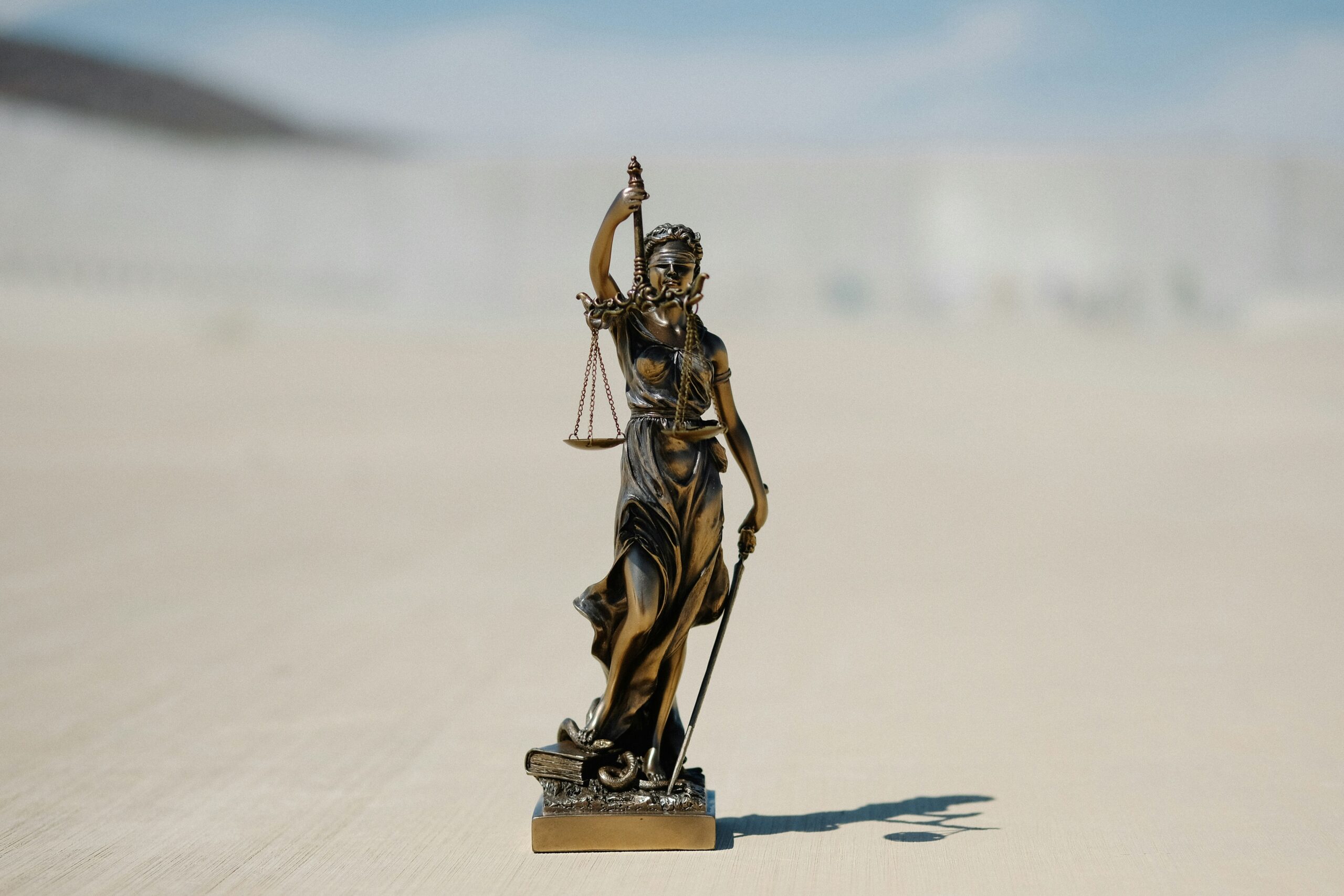Introduction to Criminal Defense Lawyers
A criminal defense lawyer is a legal professional specializing in the defense of individuals and organizations charged with criminal activity. Their primary role is to represent the accused in court, providing counsel and ensuring that their client’s rights are upheld throughout the legal process. Whether dealing with minor infractions or serious felonies, a criminal defense lawyer is crucial in navigating the complexities of the criminal justice system.
Criminal defense attorneys handle a wide array of cases, including but not limited to theft, assault, drug offenses, and white-collar crimes. Their duties encompass investigating the case, gathering evidence, interviewing witnesses, and formulating defense strategies. In addition, they negotiate plea bargains, file motions to dismiss or reduce charges, and represent their clients during trials.
To become a criminal defense lawyer, one must obtain a law degree and pass the bar examination in the jurisdiction where they intend to practice. Further specialization in criminal law, through additional coursework or certifications, can enhance their expertise. Practical experience, often gained through internships or clerkships, is also invaluable in developing the skills required for effective defense representation.
An important distinction within the realm of criminal defense is between public defenders and private defense attorneys. Public defenders are government-appointed lawyers who represent defendants unable to afford private counsel. They play an essential role in ensuring access to legal representation for all, regardless of financial status. Private defense attorneys, on the other hand, are hired directly by the defendant and often have more resources and time to dedicate to individual cases. Both types of lawyers are committed to providing a robust defense, but their approaches and resources may differ.
Understanding the fundamental role of a criminal defense lawyer is pivotal in appreciating their importance within the legal system. They serve as the cornerstone of a fair trial, advocating for justice and protecting the rights of the accused.
A criminal defense lawyer plays a pivotal role within the criminal justice system, ensuring the protection of their client’s rights from the moment an investigation begins through to the conclusion of the legal proceedings. One of the primary responsibilities of a criminal defense lawyer is to thoroughly investigate the case. This involves scrutinizing the facts, gathering evidence, and identifying any procedural errors or violations of rights that may have occurred.
Gathering evidence is a critical task that requires meticulous attention to detail. The attorney must collect, review, and analyze all available information, including police reports, witness statements, and any physical evidence. This process may also involve interviewing witnesses to gather additional insights and testimonies that could be beneficial to the defense.
Another significant duty is negotiating plea deals. In many instances, a criminal defense lawyer will engage in discussions with the prosecution to seek a resolution that may be more favorable to the client than going to trial. This could involve negotiating reduced charges or lighter sentencing in exchange for a guilty plea, thereby potentially minimizing the penalties faced by the defendant.
Representation in court is perhaps the most visible role of a criminal defense lawyer. During court proceedings, the attorney advocates on behalf of the client, presenting evidence, cross-examining witnesses, and making persuasive arguments to the judge and jury. This representation is crucial in ensuring that the defendant receives a fair trial.
Throughout the entire process, a criminal defense lawyer provides essential legal advice, guiding the client through complex legal issues and helping them make informed decisions. This advisory role extends beyond the courtroom, as the lawyer must also prepare the client for various stages of the legal process, from arraignment to sentencing.
Ethical obligations are paramount in the practice of criminal defense law. A defense lawyer must adhere to strict standards of confidentiality, maintaining the privacy of all communications with the client. This confidentiality is fundamental to building trust and ensuring that the client feels secure in sharing all pertinent information. Upholding these ethical standards is critical to the integrity of the attorney-client relationship and the justice system as a whole.
The Importance of Legal Representation in Criminal Cases
In the complex landscape of criminal law, the presence of a skilled criminal defense lawyer is indispensable for anyone accused of a crime. Without proper legal representation, defendants face a heightened risk of wrongful convictions or disproportionately severe sentences. A criminal defense lawyer’s expertise serves as a critical safeguard against these adverse outcomes, ensuring that the accused’s rights are meticulously protected throughout the legal process.
One of the paramount roles of a defense attorney is to guarantee a fair trial for the defendant. This involves scrutinizing the evidence presented by the prosecution, identifying procedural errors, and challenging any unlawful practices. An experienced lawyer’s ability to navigate these intricacies can be the deciding factor between a conviction and an acquittal. Furthermore, defense attorneys are adept at negotiating plea deals that may result in reduced charges or lighter sentences, thus mitigating potential penalties.
Additionally, a criminal defense lawyer provides a realistic assessment of the case’s potential outcomes. They can anticipate the prosecution’s strategies and prepare a robust defense accordingly. This preparedness not only strengthens the defendant’s position but also aids in making informed decisions about how to proceed. Without such informed guidance, defendants might make detrimental choices that could severely impact their future.
Moreover, the emotional and psychological toll of facing criminal charges cannot be underestimated. A competent defense attorney offers not just legal support but also emotional reassurance, helping defendants to navigate the often-overwhelming judicial system with confidence. This dual support system is crucial in maintaining the defendant’s morale and ensuring they remain engaged and coherent throughout the proceedings.
In essence, the absence of a criminal defense lawyer can leave defendants vulnerable to the full weight of the legal system, often resulting in unjust outcomes. Thus, professional legal representation is not merely a procedural necessity but a fundamental right that upholds the principles of justice and fairness in criminal cases.
Choosing the Right Criminal Defense Lawyer
When facing criminal charges, selecting the right criminal defense lawyer is crucial for ensuring a fair trial and the best possible outcome. One of the primary factors to consider is the lawyer’s experience. An experienced criminal defense attorney will have a deep understanding of the legal system, familiarity with local court procedures, and established relationships with prosecutors and judges. This knowledge can be instrumental in crafting a robust defense strategy.
Reputation also plays a significant role in selecting a criminal defense lawyer. Researching reviews and testimonials from former clients can provide insights into the lawyer’s professionalism, reliability, and effectiveness. Additionally, seeking recommendations from trusted sources, such as friends, family, or other legal professionals, can help narrow down the options.
Another critical factor is the lawyer’s track record. Reviewing past case outcomes, especially those similar to your own, can give you an idea of the lawyer’s success rate and expertise. Specialization is equally important; some lawyers may focus on specific types of criminal cases, such as DUI, drug offenses, or white-collar crimes. Choosing a lawyer with a specialization relevant to your charges can enhance the likelihood of a favorable outcome.
Effective communication skills are essential for any criminal defense lawyer. The attorney should be able to explain complex legal concepts in a way that is easily understandable, keeping you informed and involved throughout the process. During initial consultations, assess the lawyer’s ability to listen and address your concerns. This interaction can also help you gauge your comfort level with the lawyer, which is vital for a collaborative and trusting attorney-client relationship.
Conducting thorough initial consultations with potential lawyers is a critical step. Prepare a list of questions to ask about their experience, case strategy, and fees. Pay attention to how they respond and whether they demonstrate genuine interest in your case. Feeling comfortable and confident with your chosen legal representation can significantly impact your peace of mind and the overall defense process.


